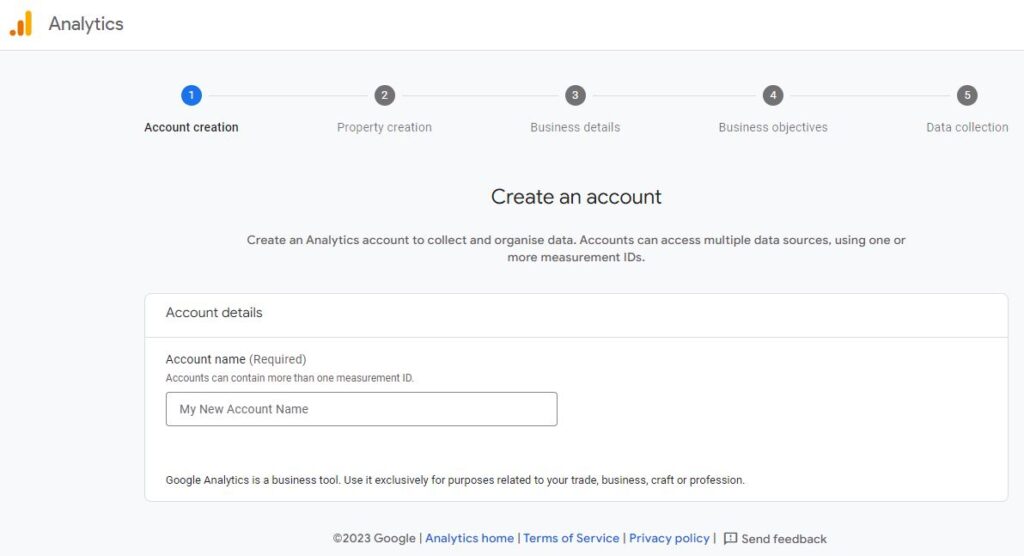Google analytics detail:
Web analytics service Google Analytics monitors and reports on website traffic. It is a free application that can be used to gauge user engagement and website performance. Website owners may use Google Analytics to analyse their audience, calculate the return on their advertising investment, and monitor the effectiveness of their site.
A thorough description of Google Analytics’ operation is provided below, along with screenshots for each stage.
Step 1: Sign Up for Google Analytics:
Creating an account is the first step in utilising Google Analytics. Visit the Google Analytics home page at to get started https://analytics.google.com/ and click on the “Start for free” button.

Step 2: Set Up a Property:
After creating an account, you must configure a property to track. A property is a website or app that you want Google Analytics to track. Click the “Admin” button in the lower left corner of the screen to configure a property.
From the “Admin” page, click on the “Create Property” button.
The information about your website, including its name, URL, and industry category, should then be entered.
Step 3: Add Tracking Code to Your Website:
After creating an account, you must configure a property to track. A property is a website or app that you want Google Analytics to track. Click the “Admin” button in the lower left corner of the screen to configure a property.
Next, duplicate the tracking code and paste it in the HTML code for the head area of your page.
Step 4: Analyze Your Website’s Traffic:
You may start analysing your website’s traffic after the tracking code has been applied to it. To accomplish this, select the report you wish to view by clicking on the “Reporting” tab.
Google Analytics offers a variety of reports, including:
1-Reports about your website’s audience: These reports include details on your site’s visitors’ ages, genders, interests, locations, and other characteristics.
2- Acquisition reports: These reports outline the sources of visitors to your website, including referral traffic, sponsored search, social media, and organic search.
3- Reports on visitor behaviour: These reports detail what visitors are doing while on your website, including how long they stay, which pages they see, and what actions they take.
4- Conversion reports: These reports show the number of site visitors who become clients, subscribers, or leads.


Conclusion:
Google Analytics is a strong tool that may give website owners insightful information about the performance of their website. Website owners may optimise their sites to boost user engagement, boost conversions, and expand their businesses by knowing their audience, tracking the success of their websites, and assessing the ROI of their advertising. Website owners may use Google Analytics to make data-driven decisions that will help them prosper online.











